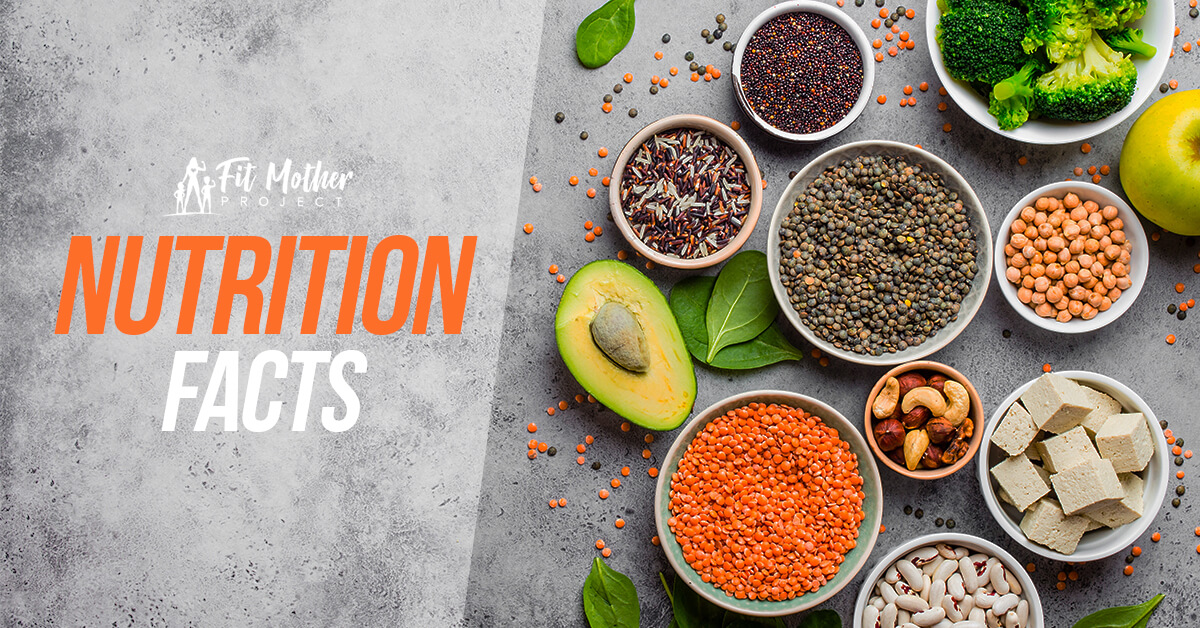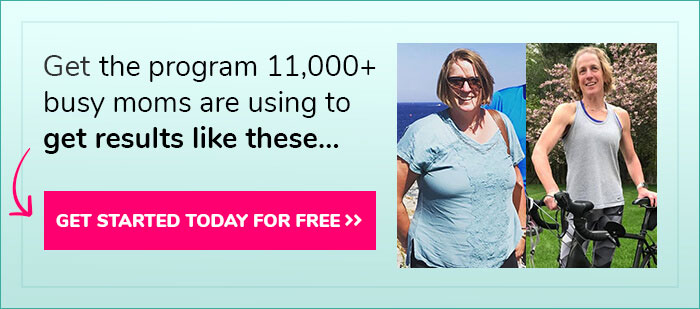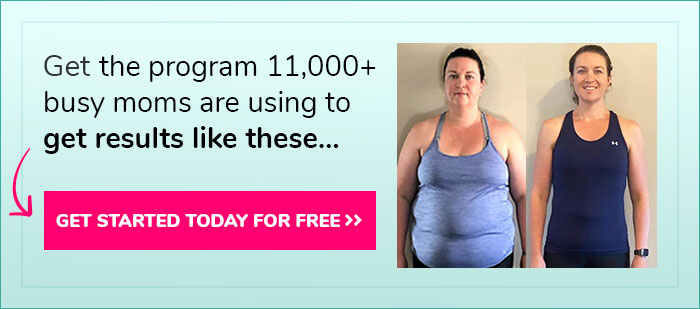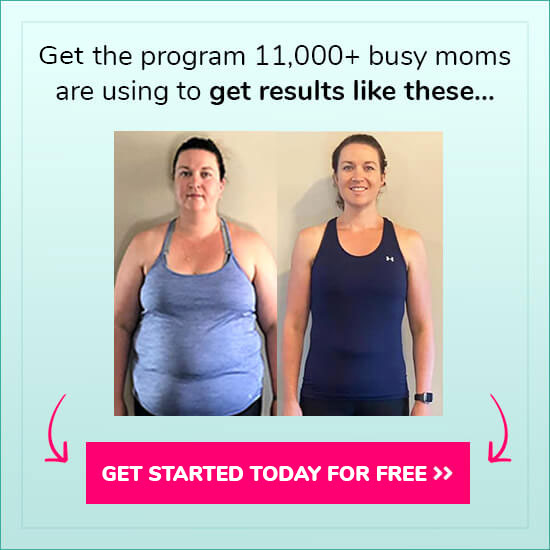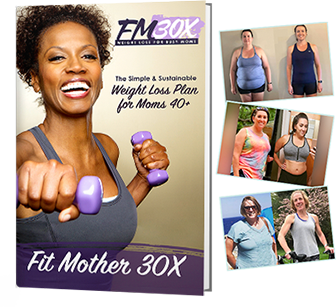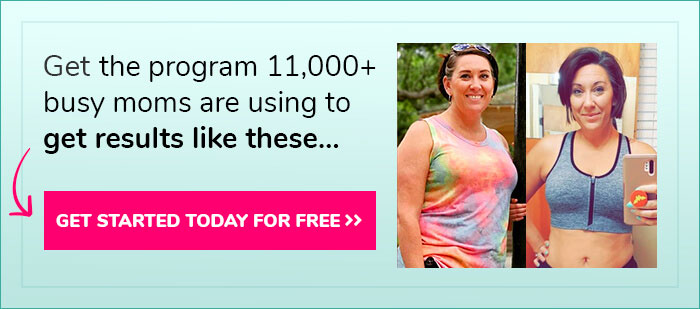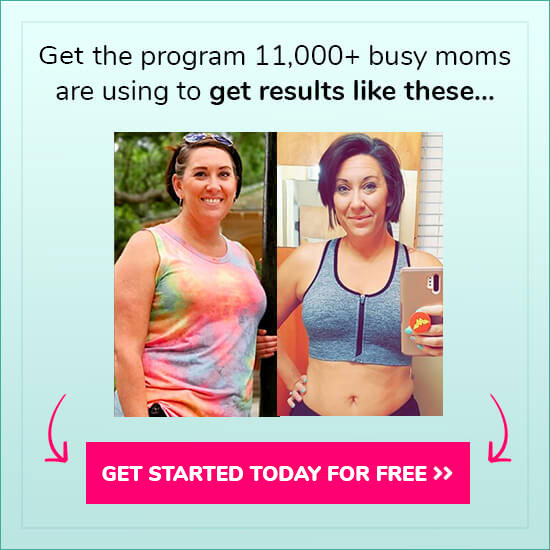Knowing more about nutrition facts for women can help you optimize your health, wellness, and overall quality of life!
A simple way to meet your body's daily nutritional needs is to fill 1/2 of each plate of food with non-starchy vegetables, 1/4 with nutritious protein foods, and 1/4 with fiber-rich starches.
Choose healthy fats at each meal, consume three servings of dairy foods or calcium-rich alternatives, and aim for two servings of fruit daily.
Drink plenty of water too (aim for at least 12 cups per day).
If you have questions or concerns about dietary fat, sodium, added sugar, cholesterol, or other items listed on nutrition facts labels, use the information below as a guide!
Check out this list of key nutrients for women. Are you getting everything you need?
Nutrition Facts: 12 Things You Need to Know
Calorie Requirements
You might be curious about how many calories you should consume daily to maintain a healthy weight.
The answer varies based on your size, age, metabolism, and activity level.
However, you can follow general calorie guidelines to get a feel for your estimated daily calorie needs.
According to the Dietary Guidelines for Americans, the following requirements for healthy weight management often apply to men and women:
Women
- Ages 19-25: 2,000-2,400 calories
- Ages 26-30: 1,800-2,400 calories
- Ages 31-50: 1,800-2,200 calories
- Ages 51-60: 1,600-2,200 calories
- Ages 61 and up: 1,600-2,000 calories
Men
- Ages 19-20: 2,600-3,000 calories
- Ages 21-35: 2,400-3,000 calories
- Ages 36-40: 2,400-2,800 calories
- Ages 41-55: 2,200-2,800 calories
- Ages 56-60: 2,200-2,600 calories
- Ages 61-75: 2,000-2,600 calories
- Ages 76 and up: 2,000-2,400 calories
If your goal is weight loss, the National Heart, Lung, and Blood Institute (NHLBI) suggests consuming 1,200-1,500 calories daily for women and 1,500-1,800 per day for men.
Or, you can simply eat 500-1,000 fewer calories than your usual intake to drop about 1-2 pounds per week.
Carbohydrates
Carbohydrates are your body's main source of energy, and you need carbs on regular basis to sustain optimal body and brain functioning.
The Institute of Medicine recommends men and women consume 45-65% of their total calories from carbohydrates, or 225-325 grams of carbs per day when following a 2,000-calorie meal plan.
You might eat fewer carbs than this if you're trying to drop weight or avoid gradual weight gain over time.
Food sources of healthy carbohydrates include the following.
About 15 grams of carbs per serving:
- Quinoa, oatmeal, whole-grain breads, whole-grain cereals, whole-grain pasta, brown rice, wild rice, and other whole grains
- Corn, peas, sweet potatoes, black beans, soybeans, lentils, and other legumes
- Apples, pears, bananas, grapes, kiwi fruit, oranges, and other fruits
About 12 grams of carbs per serving:
- Milk
- Plain yogurt
- Some plant milks
About 5 grams of carbs per serving:
- Leafy greens, bell peppers, cucumbers, tomatoes, broccoli, cauliflower, asparagus, zucchini, and other non-starchy veggies
- Nuts and seeds
Desserts, sodas, other sugar-sweetened drinks, potato chips, baked goods, white bread, and other refined grains are also source of carbohydrates — but steer clear of these not-so-healthy carbs whenever possible.
Nutrition facts labels list the amount of total carbohydrates, fiber, sugar, and added sugar present in packaged foods.
What are the worst carbs to eat? Here are the most important carbs to avoid for weight loss!
Protein
You need protein to maintain numerous structures and functions within the body.
Protein is a key component of your bones, muscles, hair, skin, nails, and numerous other structures.
Protein helps keep your metabolism high, allows you to stay full for longer time periods, and makes achieving or maintaining a healthy weight easier.
Foods rich in protein include the following:
- 3 ounces of chicken: 28 grams of protein
- 3 ounces of steak: 26 grams of protein
- 3 ounces of turkey: 25 grams of protein
- 3 ounces of fish: 22 grams of protein
- 3 ounces of seafood: 15-20 grams of protein
- 6 ounces of Greek yogurt: 18 grams of protein
- 1/2 cup of cottage cheese: 14 grams of protein
- 1 ounce of soy nuts: 12 grams of protein
- 1/2 cup of cooked legumes: 6-11 grams of protein
- 1 ounce of nuts or seeds: 4-9 grams of protein
- 1 cup of milk or soy milk: 8 grams of protein
- 1 ounce of cheese: 7 grams of protein
- 2 tablespoons of nut butter: 7 grams of protein
- 1/2 cup of cooked wheat berries: 6 grams of protein
- 1 large egg: 6 grams of protein
- 1/2 cup of cooked quinoa: 4 grams of protein
- 1/2 cup of cooked peas: 4 grams of protein
The recommended dietary allowance (RDA) for protein is 56 grams per day for men and 46 grams of protein daily for women.
Consuming additional protein can optimize healthy weight management and help you maintain or build lean body mass.
How much protein do we need per day? Calculate your daily protein intake!
Dietary Fat
Dietary fat is one of the three macronutrients.
Your body uses it to maintain healthy hair, skin, and nails.
Consuming healthy fat is beneficial for optimal heart and brain health, and the absorption of fat soluble vitamins (vitamin A, D, E, and K).
Consume plenty of heart-healthy fats daily, such as:
- 1 tablespoon of olive oil: 15 grams
- Other plant-based oils: 15 grams
- 1/2 of an avocado: 15 grams
- 1 ounce of nuts: 15-16 grams
- 2 tablespoons of nut butter: 16 grams
- 3 ounces of hummus: 16 grams
- 3.5 ounces of olives: 12 grams
The Institute of Medicine recommends adults get 20-35% of their total daily calories from fat.
This equates to 44-78 grams of dietary fat daily when eating 2,000 calories per day.
Nutrition facts labels show the amount of total dietary fat, saturated fat, and trans fat present in packaged foods.
Saturated Fat
Consuming saturated fat in excess can increase your risk of high cholesterol and heart disease.
Mayo Clinic suggests limiting saturated fat to 10% of your total daily calorie intake, or 22 grams per day with a 2,000-calorie meal plan.
Saturated fat is found mainly in full-fat dairy foods and high-fat meats.
Trans Fat
Trans fat is a type of fat that increases your risk of heart disease and other health problems.
Limit trans fat to less than 1% of your daily calorie intake, which equates to 2 grams or less per day when eating 2,000 calories.
Trans fat might lurk in highly processed foods, fried or battered foods, stick margarine, shortening, cake mixes, cakes, pies, and doughnuts.
Dairy foods and red meats may contain smaller amounts of trans fat.
Fit Mother Project is the first sustainable weight loss program designed exclusively for busy mothers just like you... FM30X is the first sustainable weight loss program designed exclusively for *busy* mothers like you... JOIN OUR fit
mother
PROGRAMJOIN OUR FIT MOTHER 30X PROGRAM
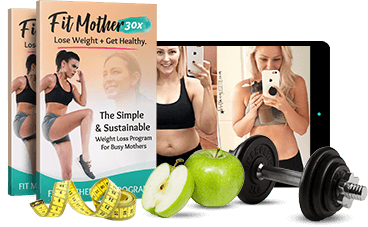
Dietary Cholesterol
While you need cholesterol (a type of fat) on a regular basis, your body can make all it needs!
Consuming too much dietary cholesterol from foods may increase your risk of heart problems.
It's present in animal-based foods like meats, eggs, cheese, whole milk, and other full-fat dairy products.
If you're trying to lower blood cholesterol, aim to consume less than 200 milligrams of dietary cholesterol daily and limit saturated fat to 13 grams per day with a 2,000-calorie meal plan.
Increase your intake of fiber-rich foods, get regular exercise, and maintain a healthy weight too.
Fiber
Fiber is the roughage part of plant-based foods, and your body can't fully digest or absorb it.
Fiber offers numerous health and wellness benefits.
The number of fiber grams men and women should aim for daily is:
- Women: 21-25 grams of fiber per day
- Men: 30-38 grams of fiber daily
Foods rich in fiber include fruits, vegetables, legumes, whole grains, nuts, and seeds. Examples include:
- 1 cup of split peas: 16 grams
- 1 cup of lentils: 15-16 grams
- 1 cup of black beans: 15 grams
- 1 cup of baked beans: 10 grams
- 1 ounce of chia seeds: 10 grams
- 1 cup of green peas: 9 grams
- 1 cup of raspberries: 8 grams
- 1 cup of cooked whole-wheat pasta: 6 grams
- 1 cup of cooked barley: 6 grams
- 3/4 cups of bran flakes: 5-6 grams
- 1 medium pear: 5-6 grams
- 1 cup of cooked quinoa: 5 grams
- 1 cup of cooked oatmeal: 5 grams
- 1 cup of broccoli: 5 grams
- 1 cup of boiled turnip greens: 5 grams
- 1 medium apple: 4-5 grams
- 1 cup of Brussels sprouts: 4 grams
- 1 medium baked potato: 4 grams
- 1 cup of corn: 3-4 grams
- 3 cups of popcorn: 3-4 grams
- 1 cup of cooked brown rice: 3-4 grams
- 1 ounce of almonds: 3-4 grams
- 1 ounce of pistachios: 3 grams
- 1 ounce of sunflower seeds: 3 grams
- 1 medium banana: 3 grams
- 1 medium orange: 3 grams
- 1 cup of strawberries: 3 grams
- 1 cup of cauliflower: 2 grams
- 1 slice of whole-grain bread: 2 grams
- 1 medium carrot: 1-2 grams
Consuming plenty of fiber regularly helps you achieve optimal gut health, maintain a healthy weight, keep cholesterol levels in check, and reduce your risk of heart disease, diabetes, and other chronic conditions.
Sodium
Sodium is a mineral present in salt that's commonly added to foods during the manufacturing process.
While your body needs sodium to function properly, ingesting too much sodium from foods can lead to high blood pressure and heart problems.
Therefore, the U.S. Food and Drug Administration (FDA) suggests adults consume less than 2,300 milligrams of sodium per day to optimize health and wellness.
If you struggle with high blood pressure or heart disease, your doctor might recommend you further reduce your sodium intake.
Foods rich in sodium include salty snacks, highly-processed meats, condiments, fried foods, canned goods, and prepackaged meals.
For example, some types of soups contain nearly 800 milligrams of sodium per serving.
If cutting back on sodium is your goal, use the following nutrition facts label guidelines (per serving) pertaining to packaged foods:
- Sodium-free: less than 5 milligrams
- Very low sodium: 35 milligrams of sodium or less
- Low sodium: 140 milligrams of sodium or less
- Reduced sodium: at least 25% less sodium
- Light in sodium: at least 50% less sodium
- No-salt-added: no salt added during processing
One teaspoon of table salt contains 2,300 mg of sodium, so steer clear of using a salt shaker whenever possible.
Choose fresh, whole foods while grocery shopping.
Prepare meals at home as often as you can, rather than dining out.
Sugar
Sugar is a nutrient found naturally in some whole foods, but it's also commonly added to processed foods during manufacturing.
Foods containing natural sugar include milk, yogurt, fruits, vegetables, and some whole grains.
Added sugar is refined sugar, which when consumed in excess can contribute to unwanted weight gain, obesity, and type 2 diabetes.
It's often present in baked goods, sweets, sodas, other sugary drinks, condiments, and many prepackaged foods.
When viewing nutrition facts labels on packaged foods, you can see total sugar and added sugar content listed in grams.
Look at the ingredient list to spot sugar, high-fructose corn syrup, cane syrup, cane juice, molasses, or sucrose (all added sugars).
The American Heart Association recommends men and women consume no more than the following amounts of added sugar daily:
- Women: 25 grams of added sugar
- Men: 36 grams of added sugar
A 12-ounce can of soda contains nearly 40 grams of added sugar so avoid soda, other sugar-sweetened beverages, and sweet treats whenever you can.
Learn how to reduce sugar addiction and recognize sugar addiction symptoms!
Vitamins and Minerals
You can obtain most, if not all, of the essential vitamins and minerals your body needs daily by consuming a well-balanced diet rich in:
- Fruits
- Vegetables
- Whole grains
- Protein-rich foods
- Dairy foods or plant-based equivalents
- Legumes
- Nuts and seeds
- Heart-healthy fats
However, eating a variety of nutritious foods isn't always enough to meet your body's daily micronutrient demands.
Consider taking a multivitamin supplement for women, which can significantly reduce your risk of vitamin and mineral deficiencies.
If you're curious about how much of each essential vitamin and mineral you need daily, check out the National Institutes of Health DRI tables to learn more about your personalized vitamin and mineral requirements.
Nutrition Facts Labels
Knowing how to properly read nutrition facts labels is one of the best things you can do for your and your family's health and wellness.
On top of each nutrition facts label, you can view the portion size of the food in question and the number of servings present in each package. You also have access to:
- Calories per serving
- Total fat
- Saturated fat
- Trans fat
- Cholesterol
- Sodium
- Total carbohydrates
- Fiber
- Total sugar
- Added sugar
- Protein
- Vitamins
- Minerals
Percent daily values (DV) listed on food labels show the percentage of macronutrient and micronutrient requirements you meet when eating one portion of your favorite foods (if you require 2,000 calories per day).
Learn how to read nutrition information on another level!
How Can I Live a Healthier Life?
To learn more about nutrition facts labels, healthy eating tips, and wellness strategies, as well as gaining access to unlimited fat-burning workouts, become a Fit Mother Project member!
When you join you receive social support, health coaching from medical experts, recipes, weekly newsletters, and much more!
The Fit Mother Project has helped hundreds of thousands of members get and stay healthy for life.
In addition to knowing more about nutrition facts for women, sign up for the Fit Mother Project 30X (FM30X) weight loss program designed for busy moms, or try a FREE meal plan and workout to get started on a journey toward a healthier life today!
Erin Coleman is a registered and licensed dietitian with over 15 years of freelance writing experience. She graduated with her Bachelor of Science degree in nutritional science from the University of Wisconsin-Madison, and completed her dietetic internship at Viterbo University in La Crosse, Wisconsin. Prior to beginning her career in medical content writing, Erin worked as Health Educator for the University of Wisconsin-Madison Department of Internal Medicine. Her published work appears on hundreds of health and fitness websites, and she’s currently working on publishing her first book! Erin is a wife, and a Mom to two beautiful children.
Fit Mother Project is the answer you’ve been looking for. Inside the program, you’ll receive: Our Fit Mother 30X Program (FM30X) is the answer you’ve been looking for. Inside FM30X, you’ll receive:If you’re a busy mom who wants to finally lose weight,
get healthy, and actually keep the pounds off for good,
this is the simple program you’ll love sticking to…
GET STARTED TODAY FOR FREE
If you’re a busy mom who wants to finally lose weight,
get healthy, and actually keep the pounds off for good,
this is the simple program you’ll love sticking to…
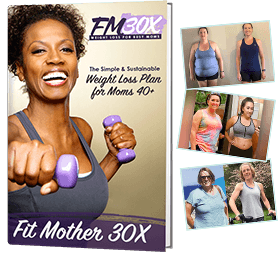
Learn More About FM30X

*Please know that weight loss results & health changes/improvements vary from individual to individual; you may not achieve similar results. Always consult with your doctor before making health decisions. This is not medical advice – simply very well-researched info on nutrition facts.

